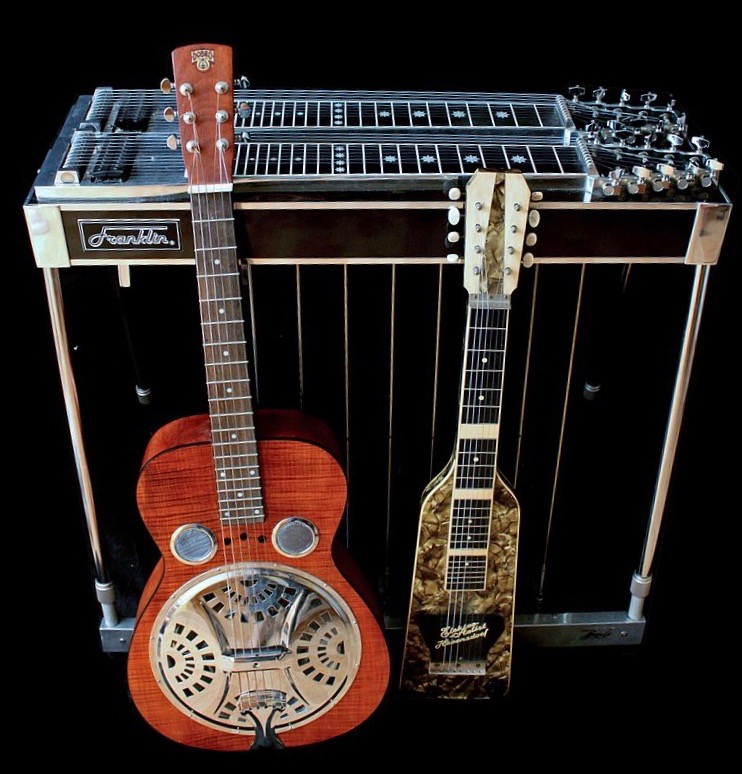Evolution of the Steel Guitar from Hawaii to Country Music
Ironically enough, one of the most popular instruments utilized in country music evolved from somewhat foreign origins. The steel guitar evolved from the traditional guitar tracing back to the late 19th century in Hawaii. It was developed by Joseph Kekuku in the 1890s, who discovered a technique of sliding a steel bar along the strings to produce a smooth, gliding sound. This method gave the instrument its distinctive name, "steel guitar".
One of its greatest strengths is its ability to create distinct moods. In country music, for example, the steel guitar often evokes feelings of nostalgia or heartache, while in Hawaiian music, it can transport listeners to serene, tropical landscapes. The pedal steel guitar, with its complex mechanics, allows musicians to bend notes and chords, adding a layer of technical brilliance that is both impressive and expressive. Overall, the steel guitar stands out for its ability to enhance a song's emotional impact, and its evolution reflects its deep-rooted cultural significance and ongoing relevance in modern music.
One of its greatest strengths is its ability to create distinct moods. In country music, for example, the steel guitar often evokes feelings of nostalgia or heartache, while in Hawaiian music, it can transport listeners to serene, tropical landscapes. The pedal steel guitar, with its complex mechanics, allows musicians to bend notes and chords, adding a layer of technical brilliance that is both impressive and expressive. Overall, the steel guitar stands out for its ability to enhance a song's emotional impact, and its evolution reflects its deep-rooted cultural significance and ongoing relevance in modern music.


Peyton, I really liked how you chose to do evolution over the guitar's music origin instead of the evolution of the guitar itself! I also like how you mentioned both moods of the steel guitar in Hawaii and Country music. A great element that I think would fit perfectly would be chords because this sets those moods you mentioned, and we get different sounds, similar to the steel guitar when foot petals were added by Gibbson. Really nice job!
ReplyDelete